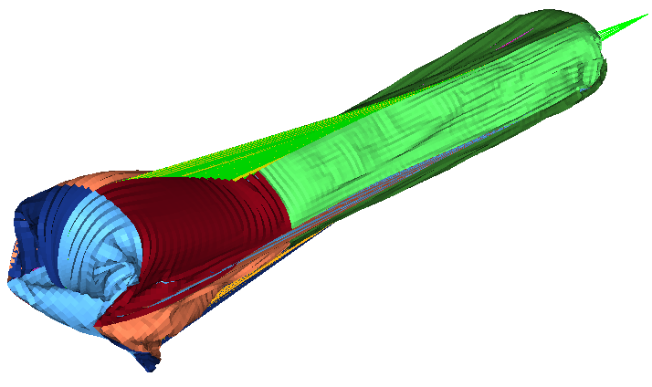Hello,
I wanted to know how Radioss calculates at every time step the volume of a monitored volume, i did not find the answer in the theory manual. I'm using four monitored volumes type COMMU1, comunicated by dummy surfaces, but the geometriy is a little bit complex and during the simulation, the common surfaces are sometimes outside the monitored volumes as you can see in the image, the green surface on the top. How this impact What would be the difference between using multiple monitored volumes COMMU1 and only one monitored volume type AIRBAG?
Thank you
<?xml version="1.0" encoding="UTF-8"?>